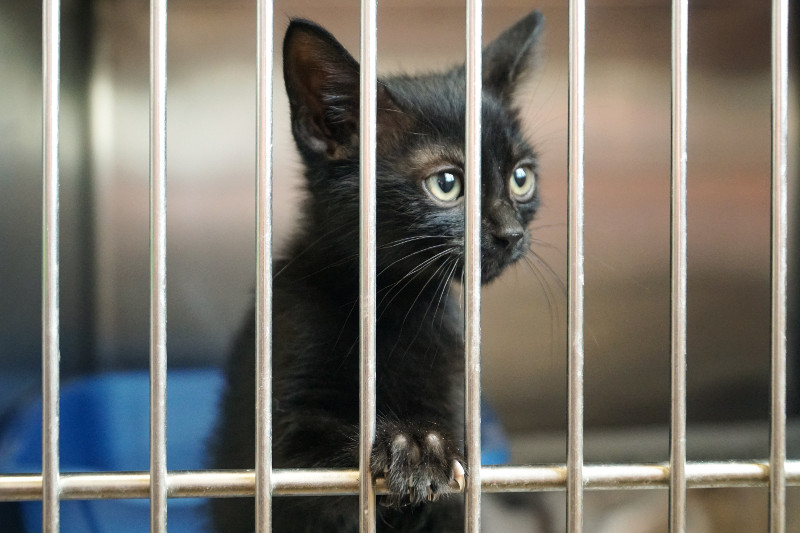It is estimated that nearly 3 in 10 Canadians adopted a pet during the pandemic, with over 40% adopting through a shelter or rescue.
As Canadians started working from home throughout the COVID-19 pandemic, many of them decided to get a pet. Because of the lockdowns, spending more time at home meant more time was available to spend training and socializing a new puppy or kitten. These pets were very helpful in reducing our feelings of stress and anxiety during a very uncertain time, gave us an excuse to remain active, and provided much needed companionship during a time where socializing with others was largely prohibited.
However, as many Canadians are now moving back into the workplace, they are no longer able to provide adequate daily care for their new companions. As a result, animal rescues and shelters across the country are being bombarded with unprecedented numbers of unwanted pets.
A prime example is the Victoria Humane Society, as they are reportedly being forced to turn animals away due to an alarming surge in surrenders; a developing trend we are seeing in hundreds of animal rescues and shelters across Canada.
Currently, the Victoria Humane Society has over 400 pets in their care looking for forever homes, and have even had to halt their animal surrender wait-list. As a result, nearby rescues and shelters, from large-scale humane societies to small in-home organizations, are being overwhelmed on a level never seen before.
Not only are pets being surrendered at record levels, many of them have grown up in homes where humans are constantly around, and they’ve had minimal external socialization due to the strange constraints of the COVID-19 pandemic. Because of this, many dogs surrendered into foster care settings require special behavioural training to develop much needed social skills before they are eligible to be re-homed. This can be a resource intensive process as it takes time, patience, and a skilled individual to do this properly.
In the early days of the pandemic, puppies and kittens were in increasingly high demand. With new pet parents working from home, they had plenty of time to house train and cuddle with their new pets. However, many entered the world of pet ownership without a plan for their eventual return to the workplace.
Now that schools have reopened, and many have returned to in-office working, pets are being left home alone more often, and for longer periods of time. For a puppy growing up during the lock-downs, the act of suddenly being left alone can create a multitude of fear-based behavioural issues, including anxiety, excessive vocalizing (barking, whimpering, etc.), and destructive behaviours around the home.
From juggling jobs, family, friends, and more, many pet owners are finding it increasingly difficult to keep up with their pet’s daily needs. However, with a little bit of planning, even the busiest families can provide their pets with the care they require by taking advantage of the multitude of professional pet care services like doggy daycare, dog walking, training classes, and more.
Nevertheless, despite the variety of pet services available, many pet owners are still finding themselves in situations that are too difficult to handle. And even worse, those who thought a new pet would be nothing but fun and play are being hit with the realities of balancing pet ownership with the many responsibilities that come with being a responsible adult. This is in large part fuelling the increase in surrenders to shelters and rescues across Canada.
Another serious issue stemming from shelters and rescues being at capacity is that many are choosing to abandon their pets in parks, wooded areas, shopping mall parking lots, and more. Overwhelmed pet owners at their wits’ end feel they have no choice but to cut ties and let their pets fend for themselves in the wild. This is a sad reality countless pets are facing to no fault of their own.
It is critical to remember that regardless of type of pet, pet ownership is a serious, long-term commitment. They’re not a TikTok trend or a hobby to engage in when we are bored or lonely. These are living, breathing, sentient beings that deserve to be cared for properly.
“Let us remember that animals are not mere resources for human consumption. They are splendid beings in their own right, who have evolved alongside us as co-inheritors of all the beauty and abundance of life on this planet” ― Marc Bekoff
So, how can you help? Consider reaching out to your local animal rescue or shelter to offer donations, fostering, or even volunteering a few hours of your time. Every bit of support we can give to Canadian animal shelters right now makes a tremendous difference as they continue to work through this incredibly trying time.
Brandon Forder, known as The Pet Expert, is vice-president of Canadian Pet Connection, an industry leader in healthy pet lifestyles. Brandon is certified in pet nutrition, and has more than twenty-five years’ experience specializing in pet health and behaviour. He has written hundreds of informative pet-related articles for newspapers, magazines, radio, and the popular Ask the Pet Expert Blog. Brandon is highly skilled in pet problem solving, and enjoys teaching others about smart and responsible pet ownership. To learn more, visit www.CanadianPetConnection.ca.












